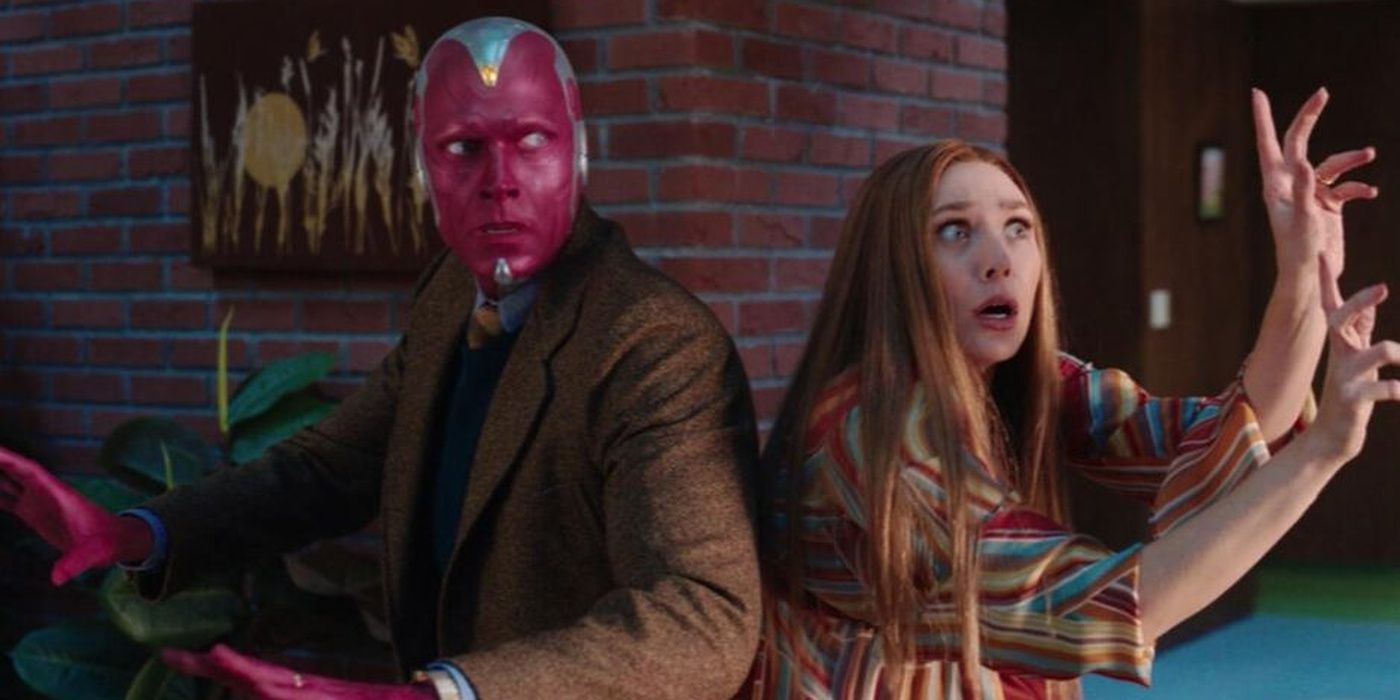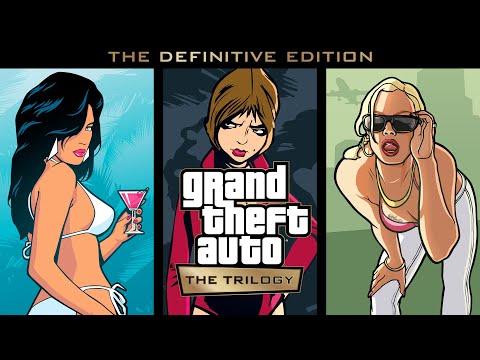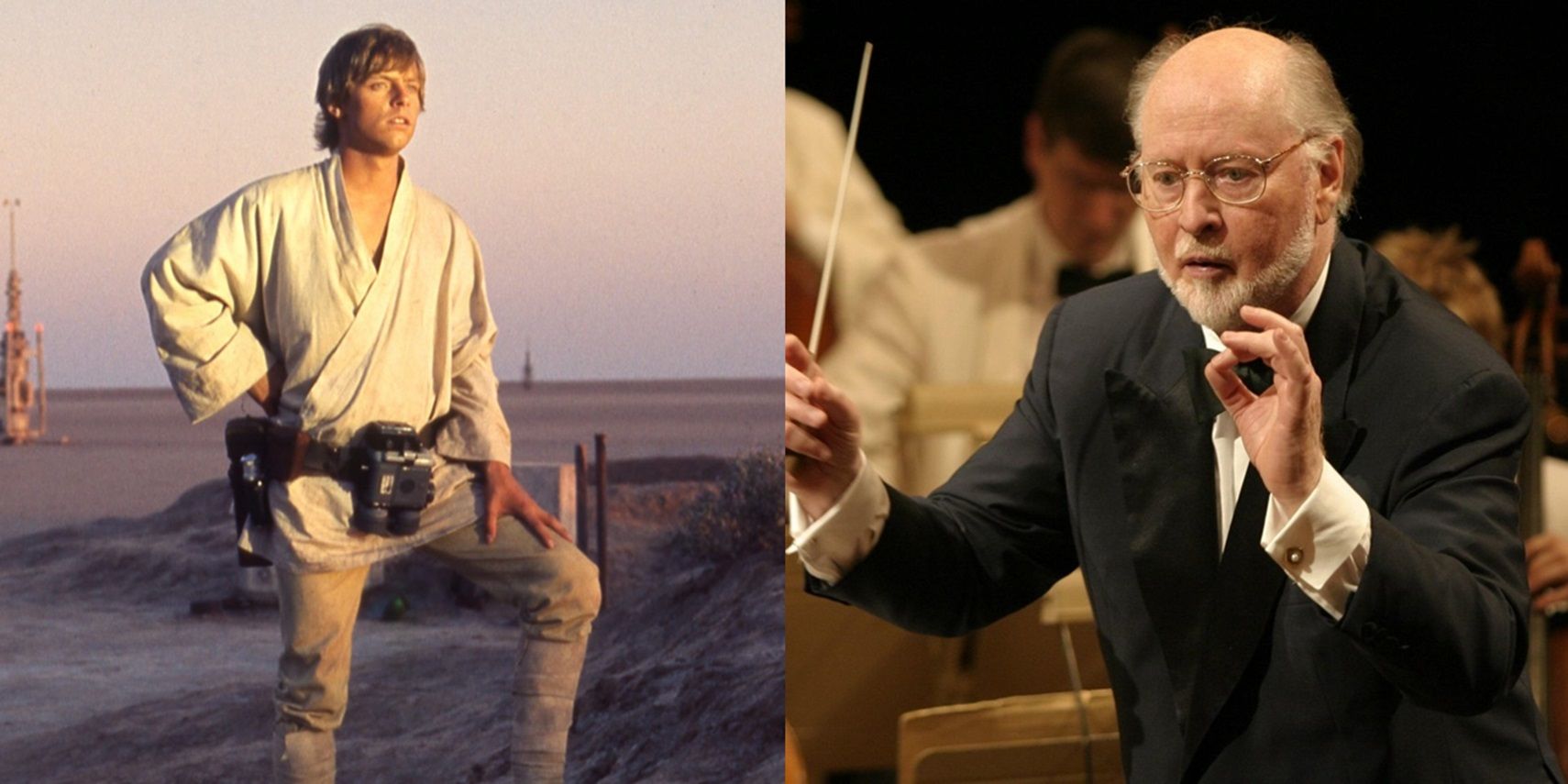
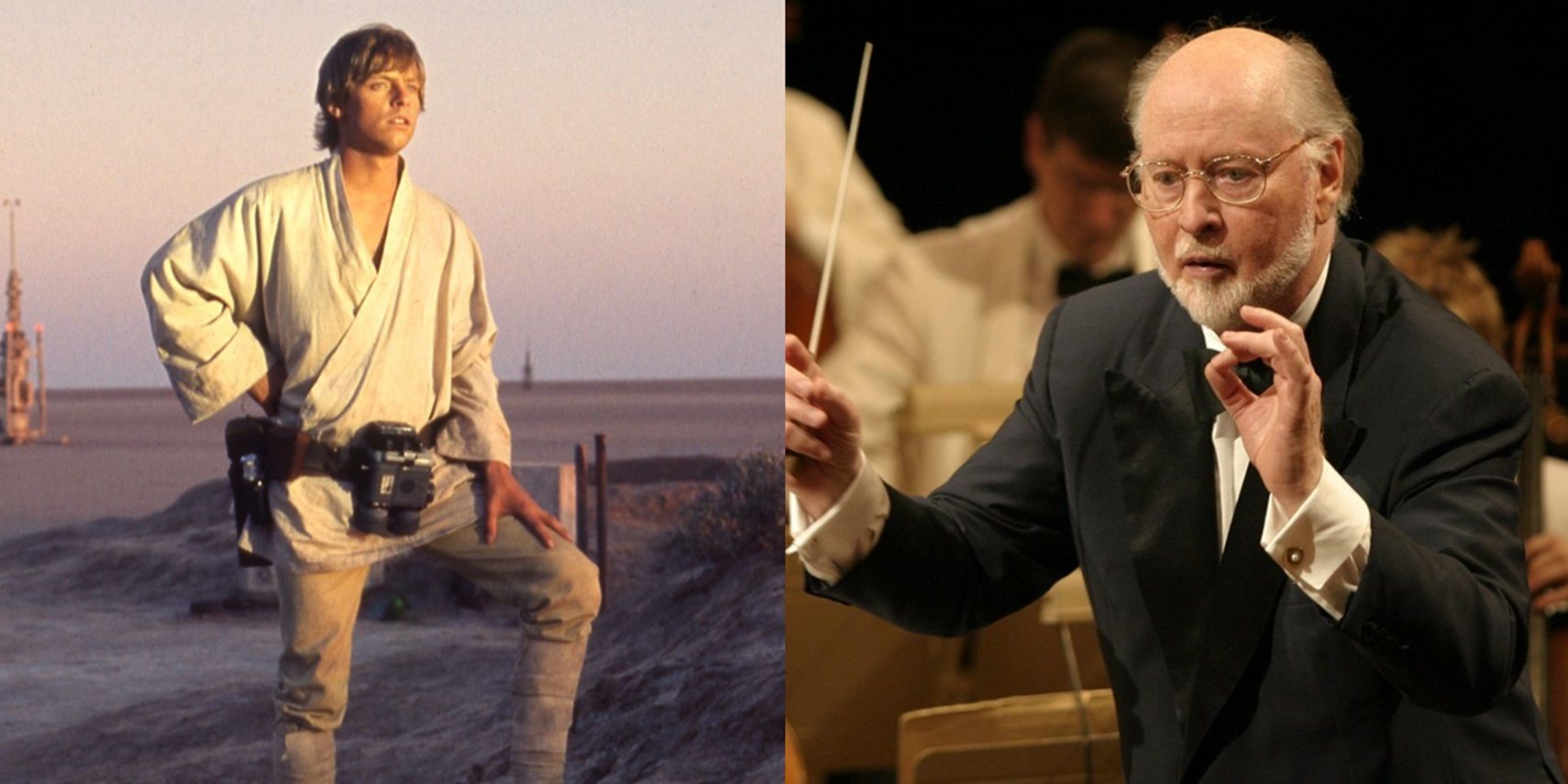
Composer John Williams arguably contributed just as much to the tone and feel of the Star Wars universe with his iconic music alone as George Lucas himself did creating all the characters and their stories and the worlds they inhabit. Williams’ scores were one of the few things that all Star Wars fans could agree were great in the sequel trilogy.
Tracks like “The Imperial March” and “Duel of the Fates” and, of course, the main theme have joined the pantheon of the most instantly recognizable music in film history, ranking alongside such classics as Bernard Herrmann’s “The Murder” from Psycho and Ennio Morricone’s “Ecstasy of Gold” from The Good, the Bad, and the Ugly. But Lucas originally didn’t plan to score Star Wars with original music at all.
RELATED: Ben Burtt Is The Unsung Hero Of Star Wars
Lucas initially planned to play recordings of existing classical music over every scene in Star Wars. Stanley Kubrick had used this technique to phenomenal success in 2001: A Space Odyssey. Tunes like “Also Sprach Zarathustra” by Richard Strauss and “The Blue Danube” by Johann Strauss II elevated an impressive technical achievement to a mind-bending cinematic masterpiece that perfectly captures the triumphs and follies of humanity.

But 2001 and Star Wars are very different movies. They’re both sci-fi epics set across the stars, but where 2001 aims to predict the future of the human race and explain its complicated past, Star Wars aims to offer escapist entertainment for all ages. 2001 depicts space travel and A.I. as realistically as possible to give audiences a sobering look at what awaits us in the distant future; Star Wars does the opposite, depicting its technology as unrealistically as possible to transplant the morals and tenets of fairy tales into an intergalactic setting.
The rich, grandiose sounds of György Ligeti fit perfectly with Kubrick’s operatic shots of space stations floating through the cosmos and interstellar flight attendants walking up walls. But the journey of two bickering droids and Ben Kenobi’s lightsaber duel with Darth Vader and the destruction of the Death Star needed something a lot more whimsical and theatrical – and original – to match the uniquely pulpy tone that Lucas created on-screen.
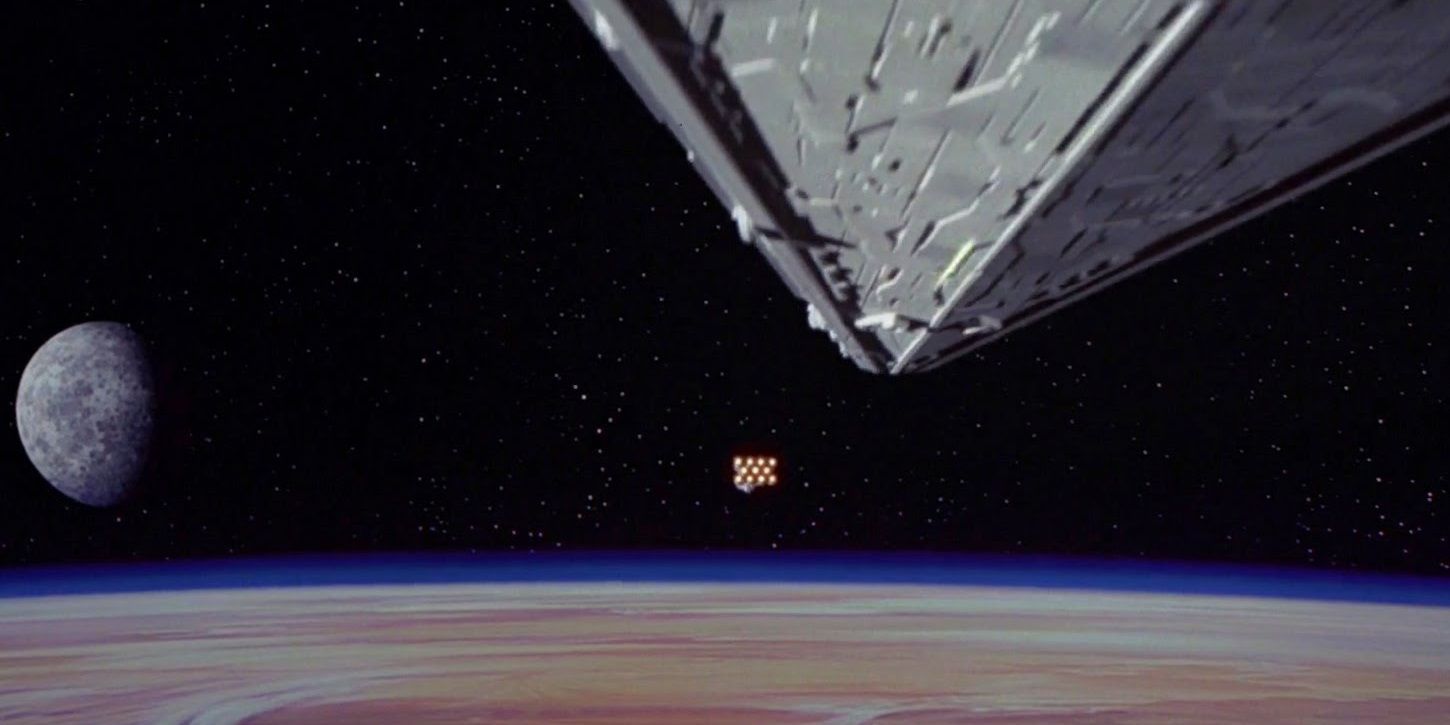
When fans sit down to watch a new Star Wars movie and the lights go down and “A long time ago in a galaxy far, far away. . . .” appears over a black screen, and then the words “STAR WARS” fill the frame and gradually disappear into the vacuum of space, it’s not the logo that brings the house down – it’s the unmistakable theme that blares onto the soundtrack with it.
As it turns out, Star Wars fans have Steven Spielberg to thank for all the tunes they can’t stop whistling. Spielberg had just worked with Williams on Jaws, and felt that his unique orchestral style could give his friend George Lucas’ new movie Star Wars (and, as it turned out, the resulting franchise) a musical identity of its own. According to Williams, “One day, Steven called me and said, ‘Do you know George Lucas?’ I said, ‘No, I have no idea who he is.’ ‘Well, he’s got this thing called Star Wars, and he wants to have… a classical score, and I’ve convinced George he should meet you.” And the rest is history.
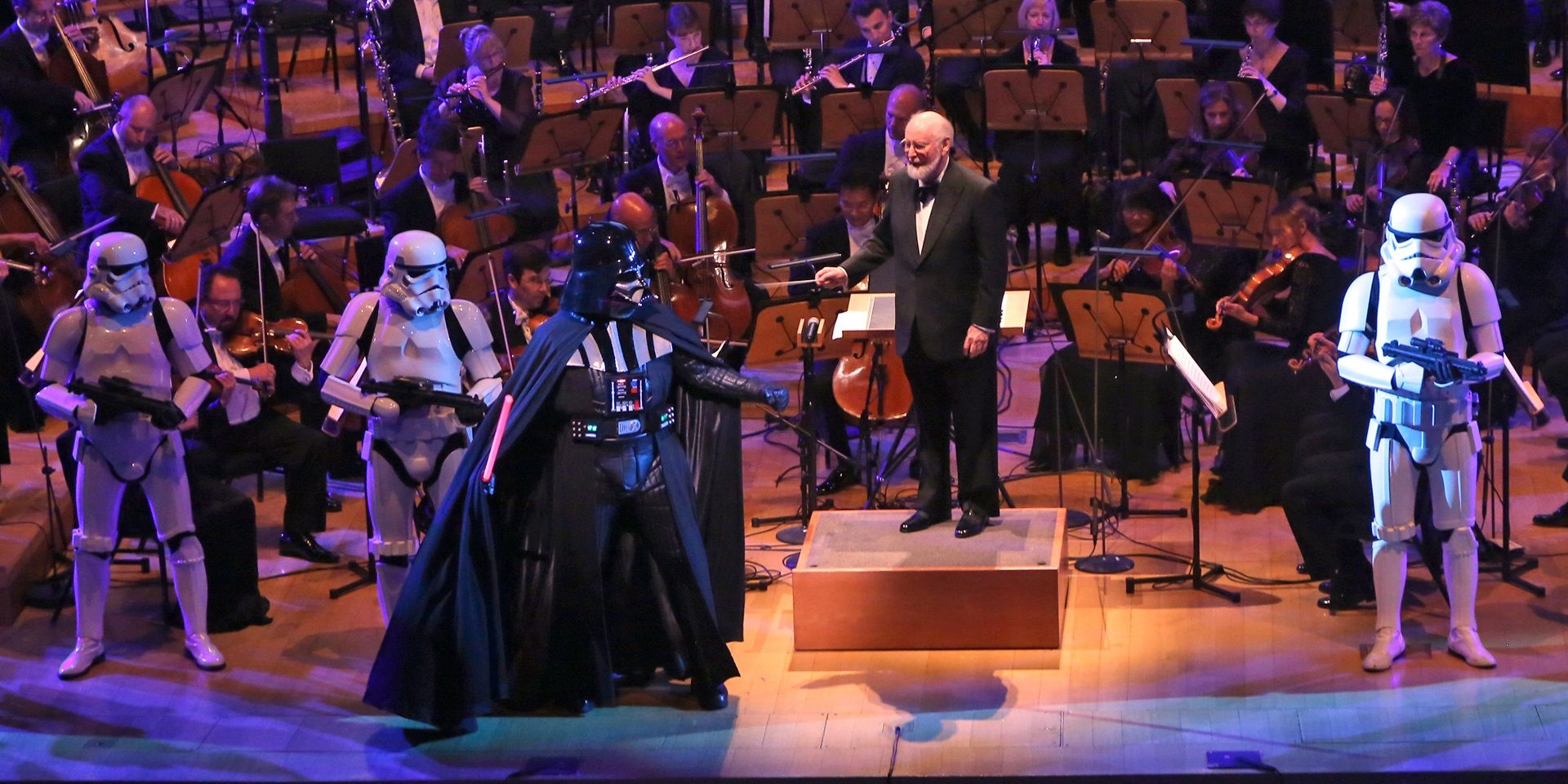
After the Williams interview was published in The New Yorker, a representative for Lucas disputed the classical music claim, saying that he “never intended to use extant music” in Star Wars. Either way, there’s no guarantee that an original score by a composer other than Williams would’ve been anywhere near as great.
If Spielberg hadn’t arranged that meeting, the music of Star Wars could’ve turned out very differently. There would be no “Imperial March” to announce Darth Vader. There would be no “Battle of the Heroes” to underscore Anakin and Obi-Wan becoming enemies. There would be no “Binary Sunset” to set the inspirational tone for Luke Skywalker’s hero’s journey. There would be no “Duel of the Fates” to convey the tragedy of Darth Maul killing Qui-Gon and sealing Anakin’s dark fate.
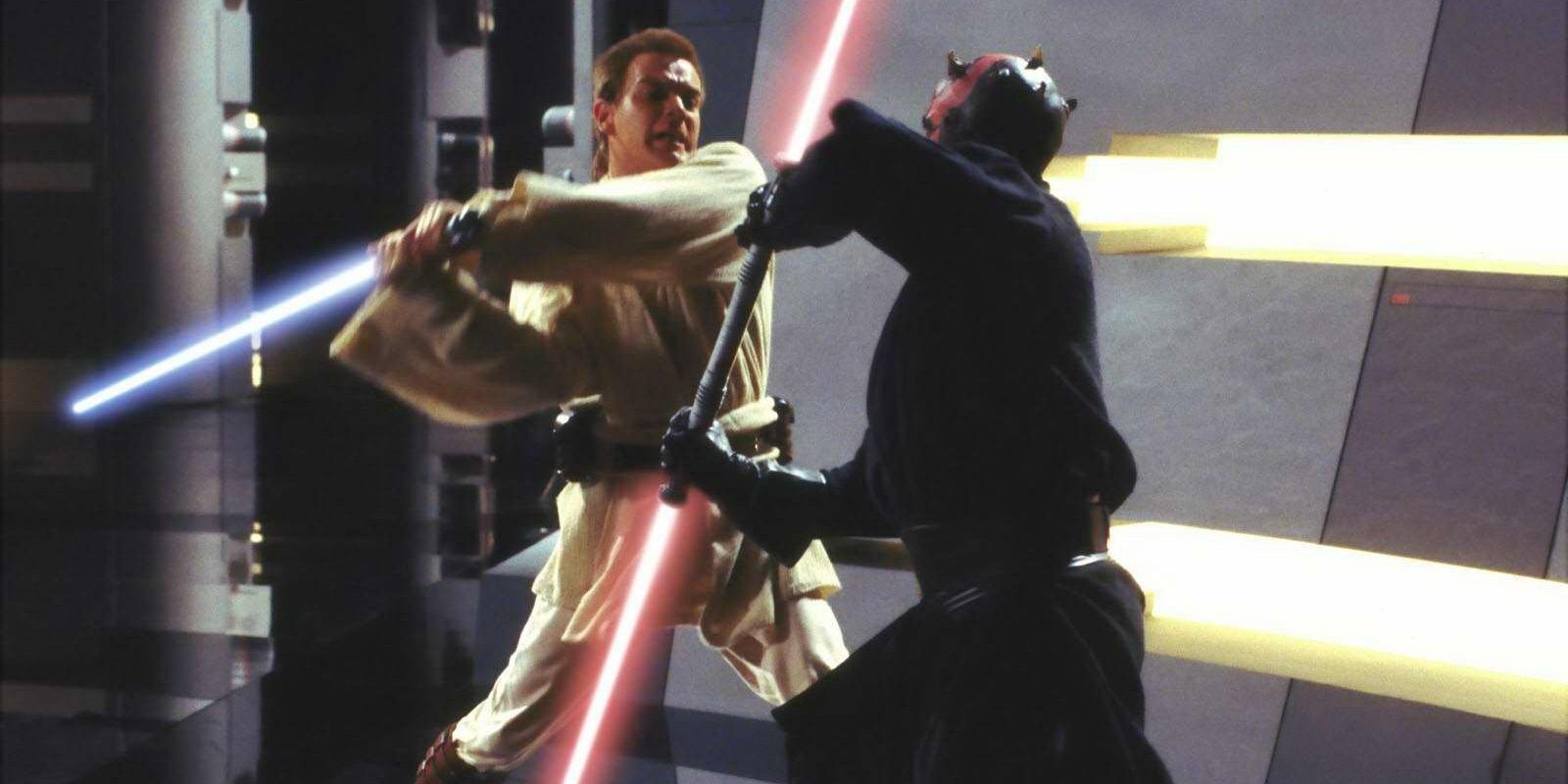
After being the driving force behind the franchise’s musical output for four decades, Williams officially retired from composing Star Wars music with his Oscar-nominated score for The Rise of Skywalker. Now, the saga is in the hands of a new generation of composers who grew up with the adventures of the Jedi and can’t wait to put their own personal stamp on the Star Wars universe, the way Williams did way back in 1977.
Ludwig Göransson’s Mandalorian music has been deftly walking the line between honoring Williams’ traditions and evolving the sound of Star Wars with the inclusion of new instruments and musical styles. The future of the Star Wars saga’s indistinguishable original music is bright. And to think it (maybe) could’ve been scored with familiar classical pieces instead.
MORE: How Jon Favreau's Love Of Return Of The Jedi Is Saving Star Wars

